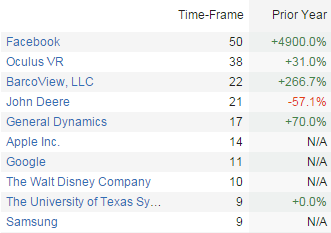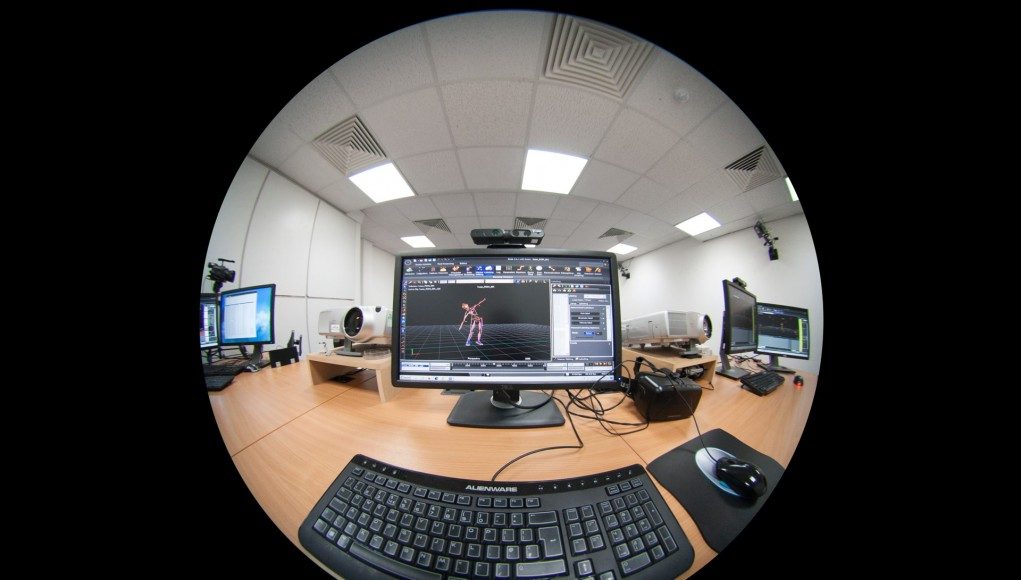We all know that the VR market is heating up, but what is staffing like at the companies that are creating these devices and applications? Whether or not companies are able to find the talent they need may have an impact on their ability to penetrate the market and gain customer adoption. Considering this, we took a deeper look into the demand and supply for virtual reality skills.
 Ashley Zito Rowe is a Labor Market Analyst and Senior Marketing Manager for WANTEDAnalytics. Her articles and insight have been featured on or cited by Forbes, Computerworld, HR.com, ERE, American Staffing Association, Philly.com and others. When Ashley isn’t researching hiring trends or drinking NJ wines (which she catalogs at NJ Wine with Me), she’s likely to be adventuring somewhere in the state, painting something, or watching Disney movies.
Ashley Zito Rowe is a Labor Market Analyst and Senior Marketing Manager for WANTEDAnalytics. Her articles and insight have been featured on or cited by Forbes, Computerworld, HR.com, ERE, American Staffing Association, Philly.com and others. When Ashley isn’t researching hiring trends or drinking NJ wines (which she catalogs at NJ Wine with Me), she’s likely to be adventuring somewhere in the state, painting something, or watching Disney movies.
Employers with the Most Virtual Reality Job Ads
While its full impact may be years away, there are a growing number of companies catching on and hiring in the virtual reality market. According to our WANTED Analytics hiring demand and talent supply data, there were about 200 employers advertising for candidates with virtual reality knowledge in March. Demand for this skill set was up about 37% year-over-year.

See Also: Google Lists 8 New Full-time Virtual Reality Jobs in Biggest VR Hiring Spree Yet
During March, information, professional scientific and technical services, educational services, retail, and manufacturing were among the sectors with the greatest need for virtual reality talent. The employers to the right had the highest number of job ads posted online that referred to virtual reality skills and devices. Not surprisingly, Facebook and Oculus had the most demand. These companies, as well as BarcoView, John Deere, and General Dynamics experienced increases in demand compared to the same time in 2014.
Hiring Scale Score for Virtual Reality Skills
It may be somewhat difficult for these companies to find candidates with virtual reality experience since there haven’t been many opportunities that exposed professionals to this technology. When we try to figure out the difficulty of finding candidates we use a Hiring Scale ranging from 1 to 99 to determine how hard-to-fill a job is likely to be (1 being the least difficult and 99 representing the toughest conditions.)

According to the scale, virtual reality skills score a 65. This means that companies filling openings requiring this skill set are likely to face some difficulty. This also shows that there is less competition among job seekers than there is among employers, which is good news for job seekers with these skills.
Candidates with VR experience in Silicon Valley
Across the US, about 12,000 candidates have VR experience. A quick scan in the Silicon Valley area shows that 3% of VR professionals are in the region. Compared to other metro areas, Washington DC had the most people with an understanding of VR concepts and technologies, 11% of the existing talent pool. Both of these locations were among those with the most demand and the most challenging recruiting conditions.

For employers filing VR jobs in hard-to-fill cities, they should look to locations where the hiring environment is likely to be more favorable. Consider offering relocation packages to candidates in these areas. For example, Virginia Beach is within the DC region and likely to have less difficult recruiting conditions. Candidates may be more willing to make a move since it’s within a closer range than other cities throughout the US. For those who aren’t willing to relocate, employers may want to think about offering telecommuting opportunities for the right candidate.
See Also: Looking for a Job in Virtual Reality? Apple’s Hiring
The number of candidates with VR skills will likely increase, but possibly not at the speed of growing demand. If you’re a professional with VR experience, your knowledge is in demand. Most employers are recruiting virtual reality talent for Software Developer (Applications), Computer Systems Analyst, Computer User Support Specialist, and Network and Computer Systems Administrator jobs.
If you’re in one of these professions, highlight your virtual reality knowledge on your resume and in your social media profiles. Look at the careers pages of the companies listed above for opportunities, they have the most demand for virtual reality experience. By contacting them and applying for their open VR jobs, you will make their job slightly easier. You’ll also be added to their database for consideration of future VR openings. To improve your odds of being seen, look for Technical Recruiters at these companies on LinkedIn and send them a message referring to the opening.
Lead photo courtesy C-M-P (CC BY-ND 2.0)







